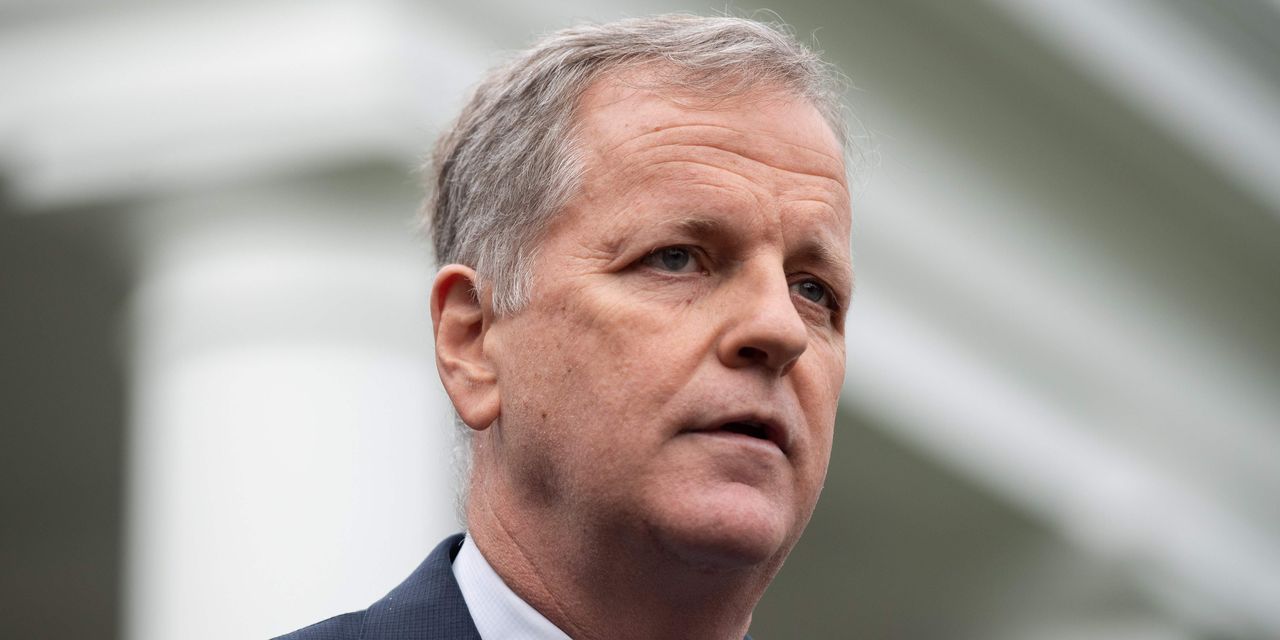Chief Executive
Doug Parker
will step down next year after two decades running airlines, handing the reins to a longtime lieutenant as the company begins to emerge from the pandemic.
Robert Isom,
who has served as American’s president since 2016, will take over as CEO on March 31, 2022, the company said Tuesday. Mr. Parker will continue to serve as chairman of American’s board.
Mr. Parker’s career has been bookended by crises: He took the helm at America West Airlines in 2001, just 10 days before the Sept. 11 terrorist attacks. Now he is departing as airlines try to move past the Covid-19 pandemic. He has been a champion of consolidation, engineering mergers that transformed the industry and built American into an industry giant.
Mr. Parker was quick to recognize last year that airlines would need financial help to avoid catastrophe during the pandemic, becoming one of the most vocal and visible advocates for a $54 billion government payroll support program. American was particularly vulnerable, having entered the pandemic with more debt than rivals.
That aid helped avert thousands of layoffs, but it has been called into question lately by lawmakers who have become frustrated that some carriers, including American, have struggled with staffing and other problems as they have emerged from the pandemic.
People who have worked with Mr. Parker have described him as good-natured and easygoing—a big-picture thinker who doesn’t shy away from taking risks. He charted an ambitious course for American through the pandemic, maintaining a bigger schedule than many rivals in hopes of capturing more revenue.
That has at times contributed to stumbles. American had to trim back flights in July as it struggled with pilot staffing, and more recently suffered a cascade of cancellations in late October.
Mr. Parker kept the airline from going bankrupt, an outcome that some analysts and industry observers had feared was possible as the pandemic began to roil the travel industry.
“I’m confident now is the right time for this transition,” Mr. Parker said in a video, adding that it had been in the works for some time and might have occurred earlier if not for the pandemic. “Robert will now lead American from a place of momentum as we recover from the pandemic.”
American isn’t the only major U.S. airline going through a transition.
Gary Kelly,
’s longtime CEO, is also set to retire early next year.
Chief Executive
Scott Kirby
took the reins of that airline in May 2020, following the retirement of
Oscar Munoz.
American had faced challenges even before the pandemic decimated travel demand, the airline’s labor relations had become strained and the carrier frequently lagged behind rivals when it came to on-time performance and cancellations.
Some of Mr. Parker’s projections have proved to be overly rosy. In 2016, when American shares were trading at around $40, he bet an analyst a bottle of wine that American’s share price would hit $60 before the analyst’s 60th birthday. He lost that bet in 2018.
Mr. Parker also predicted in 2017 that the airline industry’s days of booms and busts were over: “I don’t think we’re ever going to lose money again,” he said at the time. “We have an airline that’s going to be profitable in good and bad times.” Those words came back to haunt him last year when the pandemic caused travel to collapse. American lost $8.9 billion last year and has yet to return to consistent profitability.
It will fall to Mr. Isom to chart American’s course as it recovers from the pandemic and to grapple with the mountain of additional debt the airline has taken on to survive. Mr. Isom has been the airline’s heir apparent for years, since the ouster of then-American President Scott Kirby in 2016.
“He is the right leader to carry American forward into its next period of growth,”
John Cahill,
American’s lead independent director, said in a statement.
Messrs. Parker’s and Isom’s careers have overlapped for two decades.
Mr. Parker, the son of a supermarket-industry executive, joined American in 1986 after getting his M.B.A. from Vanderbilt University. He left American in 1991, first joining Northwest Airlines then heading to America West Airlines, becoming that airline’s CEO in 2001.
Mr. Parker’s career has been marked by big swings, as he has seized chances to create larger airlines through mergers with bigger rivals in moments of financial weakness. In 2005, he led a merger between America West and US Airways Group Inc. as the industry struggled in the wake of Sept. 11 and US Airways was in Chapter 11 bankruptcy protection.
A few years later, with American in bankruptcy proceedings, Mr. Parker once again saw an opportunity to combine two airlines to create an industry giant. American and US Airways merged in 2013, creating the world’s largest airline by traffic, with Mr. Parker at the helm. Between the two deals, there were setbacks: Mr. Parker’s US Airways failed in 2006 a hostile bid to take over
Delta Air Lines Inc.
and was rebuffed in merger talks with United.
Mr. Isom served as chief operating officer of US Airways and led its operation following the America West merger, and later led the integration with American after that combination in 2013. He previously held positions at America West and Northwest Airlines.
In a lawsuit this year challenging a partnership between American and
JetBlue Airways Corp.
struck in 2020, the U.S. Department of Justice portrayed Mr. Parker in ominous terms, saying he had been dubbed the “godfather of consolidation.”
Mr. Parker has argued that the tie-ups have resulted in a more stable industry that has benefited both companies and consumers. There are fewer airlines today but each has greater reach, providing more alternatives for travelers, better service and lower fares, he said in a recent interview.
Write to Alison Sider at alison.sider@wsj.com
Copyright ©2021 Dow Jones & Company, Inc. All Rights Reserved. 87990cbe856818d5eddac44c7b1cdeb8





